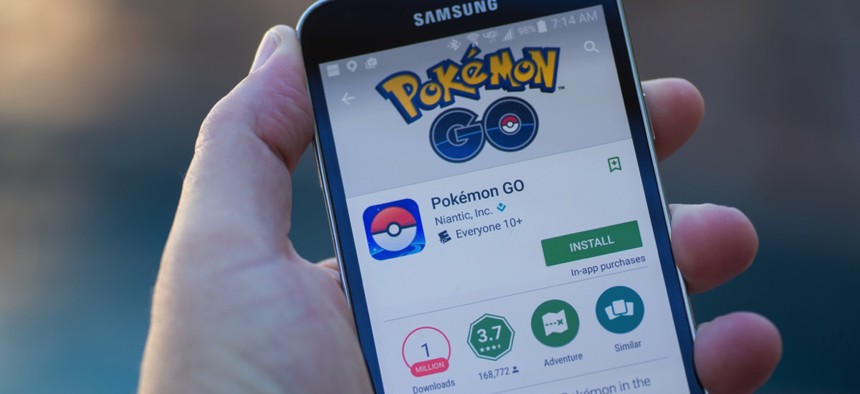Cuomo Moves to Block Sex Offenders in N.Y. From Using ‘Pokemon Go’

The governor’s action follows an investigative report from lawmakers that highlighted potentially problematic trends.
Sex offenders on parole in New York state will be barred from the popular smartphone game “Pokemon Go,” under a directive Gov. Andrew Cuomo issued Monday.
Cuomo’s move follows an investigative report a pair of New York state senators issued last Friday. Among other findings, the report highlighted dozens of instances in New York City where “Pokemon Go” characters, which game-users seek out in real world locations, appeared directly in front of the residential addresses of sex offenders on probation and parole.
State Sen. Jeffrey Klein, one of the two lawmakers behind the investigation, applauded Cuomo in a statement on Monday for taking swift action following the release of the report.
"Pokemon GO provided sex offenders with a virtual road map to our children,” he said. “We know that pedophiles always seek new ways to lure victims and this new technology that entertains our kids, could also bring them close to dangerous individuals instead of Pokemon.”
At Cuomo’s direction, the New York State Department of Corrections and Community Supervision will impose a new condition of parole for sex offenders, prohibiting them from downloading, accessing, and playing internet games like “Pokemon Go.”
The guideline will apply to nearly 3,000 sex offenders now on parole, according to the governor’s office.
The governor also sent a letter Monday to John Hanke, the CEO of Niantic, Inc., the developer of “Pokemon Go,” requesting assistance in keeping predators from using the game. In the letter, Cuomo said New York’s Division of Criminal Justice Services would reach out to the company to provide the state’s most current information about registered sex offenders.
Cuomo said the agency would contact Apple and Google as well to discuss public safety issues tied to the game.
“Pokemon Go” can be downloaded for Apple and Android smartphones. It features technology known as “augmented reality,” which mixes virtual elements into the real world. Players hunt for Pokemon characters that appear on their smartphone screens, in their actual surroundings.
The game includes incentives for players to visit places designated as “Pokestops” and “gyms.” It also incorporates “lures.” These can be purchased online and attached in the game to real locations in order to draw Pokemon and, in turn, players to a place.
The investigation conducted by Klein and state Sen. Diane Savino involved compiling a list of primary addresses for sex offenders in New York City. Those addresses were visited while using the Pokemon app to see if game activities or objectives were located nearby.
Pokemon characters were “caught” 57 times directly in front of sex offender residences. These offenders were on probation and parole and their crimes involved sexual abuse of children, or the possession of child pornography, the report about the investigation said.
All told, 73 of the 100 addresses were within a half-block of an item in the game—either a character, a Pokestop, or a gym.
The report from Klein and Savino pointed to other instances around the U.S. in which players have been drawn to potentially troublesome locations. One was an Arizona Pokestop at the same location as a hotel, which was serving as a halfway house for 43 registered sex offenders.
“Sex offenders who download the game legally could pinpoint hot spots where children congregate, like pokestops or gyms, and meet them in person,” Savino said in a statement.
“Pokemon Go” was released in the U.S. in early July.
As of the middle of the month, it had been downloaded worldwide more than 30 million times.
Bill Lucia is a Reporter at Government Executive's Route Fifty and is based in Washington D.C.
NEXT STORY: How One California County Is Trying to Control Cannabis






